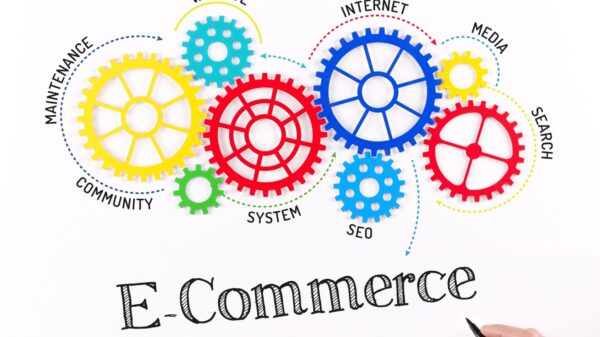Launching an online business is an exciting adventure filled with potential and challenges. With the right preparation and strategy, you can create a platform that reaches audiences around the globe. This guide breaks down everything from initial planning to advanced strategies, so you have a clear path to a successful online business.

Essential Preparations for a Successful Online Business
When starting an online business, having a clear plan is a good place to begin. It helps to think of your business like a project that needs the right resources and a clear roadmap. This means understanding your market, pinpointing your niche, and setting realistic goals.
Before you jump into operations, evaluate your passions and strengths. Your business should align with what you enjoy doing. This not only keeps you motivated but also gives you an edge when you truly understand your field.
Research is key at this stage. Understand who your potential customers are and what they might be looking for in a service or product. Tools like online surveys, forums, and social media insights can help you gather this useful information.
Budgeting for your start-up is also important. Decide on a budget for everything from a website to marketing. Even if you are bootstrapping, knowing what you can afford helps you prioritize expenses that really matter.
Another part of getting ready is understanding the digital tools available. From website builders to digital marketing platforms, knowing which tools to use will set you on the right path. These resources not only make setup easier but also help you automate many tasks.
Taking the time to establish a solid foundation for your online business ensures that you are prepared for both the bright moments and the bumps along the road.
Getting Started with Your Online Business
Once you have a foundation in place, the next phase is to get your business off the ground. This means turning your research and plans into action. A critical step is designing a website that represents your brand and serves as your business hub.
Your website should be user-friendly and optimized for search engines. These practices make it easier for potential customers to pick up on your business online. A clean, intuitive design can help visitors understand your offerings without feeling overwhelmed.
It’s a good idea to start small by launching a minimum viable product or service. This way you can test ideas in the real market without taking on too much risk. Early customer feedback is incredibly valuable; it helps you figure out what works and what might need to change.
Social media is another powerful tool. Creating accounts on platforms where your target market hangs out is important. It not only helps in spreading the word about your business but also allows you to interact directly with future customers.
Building an email list early on is also a smart move. Email remains one of the most effective channels for reaching customers. It offers a direct line of communication, especially when launching new products or announcing special offers.
Establishing a strong digital presence during the early days of your online business lays a solid groundwork. This approach makes it easier to build momentum as you refine your services and offerings.
– Turn your own Hobby/Niche website into revenue.
– Monetize content based on your interests and goals.
– Also monetize Social Media and YouTube.
– Step by step training, tools and support. Everything you need for success.
– Your own AI powered website.
– Try it FREE to see if the program is right for you. No credit card needed.
Quick Guide to Launching Your Online Business
Starting an online business might seem overwhelming, but breaking it down into clear steps can help manage the process. Below is a quick guide that covers the basics to get you started:
- Identify Your Niche: Pinpoint a specific area where you can solve problems or add value. This focus can help tailor your offerings and target the right audience.
- Develop a Business Plan: Outline your goals, target market, and revenue model. A solid business plan lays out the blueprint of how you will grow your business.
- Create a Professional Website: Choose a reliable platform that allows you to showcase your brand and services. Make sure your site is mobile-friendly and optimized for search engines.
- Set Up Digital Marketing Channels: Start with social media, email marketing, and basic search engine optimization. These channels help drive traffic to your site and build brand awareness.
- Launch a Minimum Viable Product: Test your idea with a basic version of your product or service. Use customer feedback to refine and improve your offerings.
This step-by-step process can help you move from an idea to a functioning online business quickly and effectively.
Challenges and Considerations in the Digital Marketplace
Every business faces its share of challenges, and online ventures are no exception. Being aware of common hurdles helps you prepare for and overcome them.
One major consideration is the level of competition. The digital landscape is crowded, and standing out requires a unique approach. Conduct competitor analysis to see what others are doing and identify gaps you can fill.
- Market Competition: High competition means you need to be innovative. Focus on what makes your offer different and better suited to your audience’s needs.
- Technological Barriers: Keeping up with new technologies can be challenging. Ensure you have a plan for updating your website and using modern tools that give a boost to customer experience.
- Financial Management: New businesses might struggle with budget constraints. It’s important to keep a close eye on expenses, forecast revenue, and adjust strategies based on financial realities.
- Legal and Regulatory Concerns: Online businesses must follow various rules, including data protection laws and online commerce regulations. Staying informed on legal requirements minimizes the risk of fines and disruptions.
Understanding these challenges helps you set realistic expectations. With this knowledge, you can implement strategies to overcome obstacles and follow a sustainable growth plan.
It is equally important to establish systems for regular review and adjustment. As your business evolves, so do the challenges, and staying proactive can help tone down any negative impacts.
With proper planning and a mindset prepared for hurdles, these challenges become stepping stones to long-term success.
Advanced Strategies for Accelerating Business Growth
Once you’ve established your online business, the next step is to think about growth. Growth strategies are about more than just attracting more visitors; they focus on converting interest into loyal customers and scaling your operations effectively.
One area to focus on is fine-tuning your digital marketing strategy. Learn which channels provide the best return on investment. Whether through paid advertising, content marketing, or social media engagement, finding the right mix is key.
Another strategy is on search engine optimization. As your website gains more content, making sure each page is optimized can build a steady flow of organic traffic. Focusing on long-tail keywords in your niche helps attract engaged visitors who are more likely to convert.
Using analytics tools can provide deep insights into customer behavior. Metrics such as click-through rates, conversion rates, and time on page guide adjustments for better performance. This data-driven approach empowers you to invest wisely in marketing efforts.
Customer engagement and retention should also be a priority. Building a community around your brand, whether through social media groups, newsletters, or interactive webinars, nurtures relationships that drive repeat business.
Consider partnerships with influencers or complementary businesses. Collaborations can extend your reach and introduce your brand to new audiences who trust the recommendations of their favorite sources. Relationships like these help you take up a notch in market presence, and they also make it easier to connect with consumers on a more personal level.
Exploring these advanced strategies can help you transition from a startup to a more established business ready to grow and compete in a crowded digital market.
Key Tools and Resources for Online Business Success
Having the right tools is a big part of running an online business smoothly. From website builders to marketing automation, the technology you choose can simplify many daily tasks.
One must-have tool is an easy-to-use content management system. Whether you choose WordPress, Shopify, or another platform, your website should be able to handle content updates and customer transactions without hassle.
Customer relationship management (CRM) software can also be very beneficial. Using a CRM helps you store customer data securely and provides personalized interactions, which can increase satisfaction and retention.
Digital marketing tools play a significant role. Tools for email marketing, social media scheduling, and SEO analysis are essential for creating, distributing, and monitoring marketing campaigns efficiently.
Analytics platforms should not be overlooked. They provide insights into your website’s performance, track visitor behavior, and help identify areas for improvement. This data is valuable for refining both user experience and marketing strategies.
Finally, consider investing in a reliable payment processing system. With many options available, choosing one that integrates well with your platform and offers security for transactions reassures customers that they are in safe hands.
These tools not only streamline daily operations but also allow you to concentrate on big-picture strategies. A well-equipped business is more agile and better prepared to handle sudden changes or opportunities in the marketplace.
Extra Tips for Sustaining Online Success
While the previous sections cover the fundamentals and advanced techniques to grow your online business, it is very important to keep investing in your growth by staying informed about emerging trends and customer preferences. Continually check in with industry updates, read case studies, and network with peers. This extra layer of awareness will help you adjust your methods when needed and keep your business on a steady upward path.
It is also worthwhile to set aside time for reflection on your progress. Look inward and evaluate past campaigns, sales strategies, and customer responses. By taking this step, you can spot areas that are working well and others that might need a fresh perspective. Continuous learning and the willingness to make small improvements over time are key ingredients to long-lasting success. Remember, success is not achieved overnight; it comes from persistence, regular fine-tuning, and a proactive approach to obstacles.
Another important tip is to foster a workplace culture that encourages creativity and accountability. Whether you are a solo entrepreneur or you work with a team, open communication and collaboration can drive innovation. Sharing successes and challenges openly helps build trust and allows everyone involved to contribute ideas that can ultimately benefit the business. This collaborative spirit often leads to breakthroughs that set your brand apart in a competitive online space.
Frequently Asked Questions
Here are some common questions that people often ask about launching an online business:
Question: What is the first step in starting an online business?
Answer: Begin by identifying your niche and conducting market research. Understanding your target audience and what they need is the foundation of a strong business plan.
Question: How important is it to have a professional website?
Answer: A professional website is very important because it serves as your storefront. It should be easy to navigate, mobile-friendly, and optimized for search engines to help build trust with potential customers.
Question: How can digital marketing help my online business grow?
Answer: Digital marketing connects you with your audience through social media, email, and SEO. Over time, these efforts build brand recognition and drive steady traffic to your website.
Question: What are some important legal considerations?
Answer: It’s vital to stay updated on data protection laws, online commerce regulations, and local business requirements. This helps avoid legal issues and ensures your business operates smoothly.
Question: How do I scale my online business once it’s up and running?
Answer: Scale your business gradually by analyzing performance data, expanding marketing channels, and engaging with customers to refine your offerings. Regularly review your strategies to suit changing market demands.
Wrapping Up
Launching a successful online business is an adventure that starts with clear planning and preparation. From identifying your niche to setting up the right tools and marketing channels, every step plays a part in creating a strong foundation. While you will face challenges like market competition and technological changes, proactive planning and continuous improvement can help your business thrive.
Advanced strategies and a keen understanding of digital marketing and analytics provide the tools needed to grow and adapt over time. The adventure of building an online business requires patience and a willingness to learn. Every step you take, from your initial business plan to engaging customers and refining your strategy, contributes to long-term success.
Take these insights and start mapping out your own path today. With proper execution and a commitment to ongoing learning, you can create an online business that not only survives but truly thrives in today’s dynamic digital landscape.
Here’s a little transparency: Our website contains affiliate links. If you click and make a purchase, we may receive a small commission. Don’t worry, there’s no extra cost to you.




